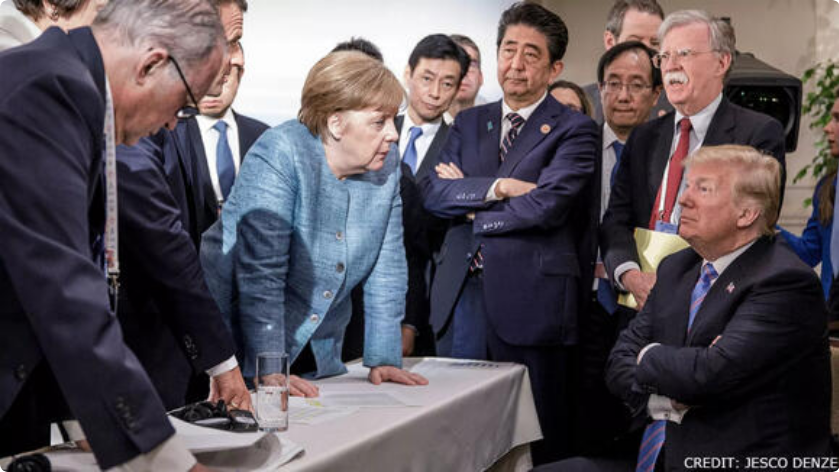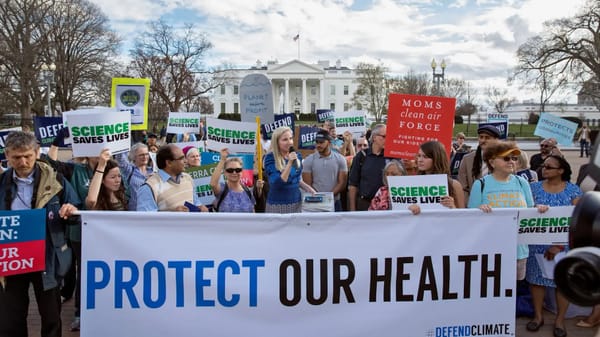Global Reaction to Trump’s Election Victory: Caution, Concern, and Calls for Stability
World leaders, economists, and international media have reacted with a mixture of concern and caution to Donald Trump’s recent election victory, marking his return to the U.S. presidency

World leaders, economists, and international media have reacted with a mixture of concern and caution to Donald Trump’s recent election victory, marking his return to the U.S. presidency. Many nations are bracing for a revival of his “America First” policies, with specific worries over trade wars, climate agreements, and geopolitical stability. While some see a potential to renegotiate agreements, most responses reflect a wary approach to the anticipated shifts in U.S. foreign policy.
Europe: Apprehension Over Climate and Defense
In Europe, leaders are voicing apprehension regarding Trump's impact on transatlantic relations, NATO cooperation, and climate policies. French President Emmanuel Macron issued a carefully measured statement, saying, “We look forward to continuing collaboration with the United States on the most pressing global challenges.” Analysts noted that Macron’s statement may reflect an attempt to proactively mitigate future tensions.
Germany’s Der Spiegel, meanwhile, took a more critical stance, emphasizing concerns over Trump’s climate policies. “Trump’s victory signals a potential rollback of U.S. commitments to climate change initiatives, potentially setting back years of progress,” the publication reported. Germany’s Environment Minister, Steffi Lemke, echoed this sentiment, expressing concern that “we will have to work harder to meet our climate goals without a strong U.S. partner.”
NATO Secretary-General Jens Stoltenberg called for “continued U.S. engagement in European security” but acknowledged that “the Alliance must prepare for possible shifts in U.S. support for shared defense.” European leaders are reportedly exploring ways to increase defense funding independently in case Trump’s policies lead to reduced American involvement.
Asia: Economic Concerns Amid Trade Dependency
In Asia, the reactions have focused largely on potential economic impacts, as many countries are heavily reliant on trade with the United States. China’s Global Times reacted sharply, characterizing Trump’s trade policies as “a relentless assault on global economic stability.” The article warned that “another term of Trump’s trade wars could reintroduce tariffs and disrupt fragile post-pandemic recoveries.”
In Japan, where trade and defense relations with the U.S. are critical, Foreign Minister Yoshimasa Hayashi expressed hope for stability, stating, “Japan values its alliance with the United States and hopes for a smooth continuation of economic and security cooperation.” However, Hiroshi Takahashi, an economist at Tokyo’s National Graduate Institute for Policy Studies, cautioned that “we may need to brace for renewed tariff battles, which could hinder Japan’s export-driven growth.”
In South Korea, analysts worry about possible instability in North Korea negotiations. The Korea Times reported on this uncertainty, quoting a senior official who noted, “We are cautious about the unpredictability in U.S.-North Korea relations, given Trump’s unconventional approach to diplomacy.”
The Middle East: Uncertainty Over Regional Stability
In the Middle East, where Trump previously took bold stances on issues such as the Israel-Palestine conflict, reactions have been mixed. Al Jazeera noted widespread caution, suggesting that Trump’s approach “may create tensions in a region already fraught with geopolitical complexities.” An anonymous senior diplomat in the UAE stated, “We hope the United States remains committed to regional stability, even if policies shift.”
In Israel, Prime Minister Benjamin Netanyahu welcomed Trump’s return, referencing their close partnership during Trump’s previous term. “We look forward to working with the United States to address shared security concerns,” Netanyahu said. Meanwhile, the Jerusalem Post acknowledged both support and skepticism, noting that “some Israeli leaders worry that Trump’s unpredictability could disrupt progress toward broader peace efforts.”
Latin America: Fears of Stricter Immigration and Trade Policies
In Latin America, Trump's election raised concerns about potential hardline immigration policies and tariffs. Mexican President Andrés Manuel López Obrador stated diplomatically, “Mexico seeks respectful and cooperative relations with the United States.” However, El Universal, a prominent Mexican publication, cautioned that Trump’s win could reignite immigration restrictions, potentially straining U.S.-Mexico relations.
In Brazil, where trade with the U.S. is significant, Folha de S.Paulo reported that business leaders are concerned about possible tariffs on Brazilian exports. “We must prepare for the possibility of new trade barriers that could impact our recovery,” said Roberto Campos Neto, President of Brazil’s Central Bank. Campos Neto highlighted the importance of diversifying Brazil’s trade partners as a contingency.
Conclusion: Global Watchfulness Amid a New Phase of U.S. Relations
As Trump prepares to take office, the global community is watching closely to see how his policies will unfold. While some leaders have extended cautious greetings and expressed hopes for continued collaboration, most responses reveal concerns about potential policy shifts that could impact climate commitments, trade stability, and international security.
With an atmosphere of uncertainty surrounding U.S. foreign policy under Trump, many countries are preparing to adapt. Whether through diversifying trade partnerships or increasing independent defense funding, the international community appears poised for a period of careful navigation in the new U.S. administration.
At DayMark News, we are committed to exposing the rise of authoritarianism and its threat to democracy. In a time when disinformation spreads like wildfire and democratic institutions face relentless attacks, we need your support to keep the fight alive.
Investigative journalism is our weapon against authoritarian ideologies. We delve deep to uncover the truths others would rather keep hidden, while providing actionable resources to empower individuals like you to defend our democracy.
We believe in transparency, integrity, and the power of a well-informed public. But maintaining a platform dedicated to fearless reporting and mobilization requires resources. We refuse to bow to corporate interests or compromise our mission. That's why we turn to you — our community.
Every donation, big or small, helps us continue our work. With your support, we can produce the in-depth analyses, breaking news, and educational tools needed to resist the rise of extremist movements and protect democratic values for future generations.
This fight belongs to all of us. Together, we can ensure that democracy not only survives but thrives. Please consider making a contribution today to keep DayMark News strong and independent.
Donate Now: Because Democracy Can't Defend Itself.





